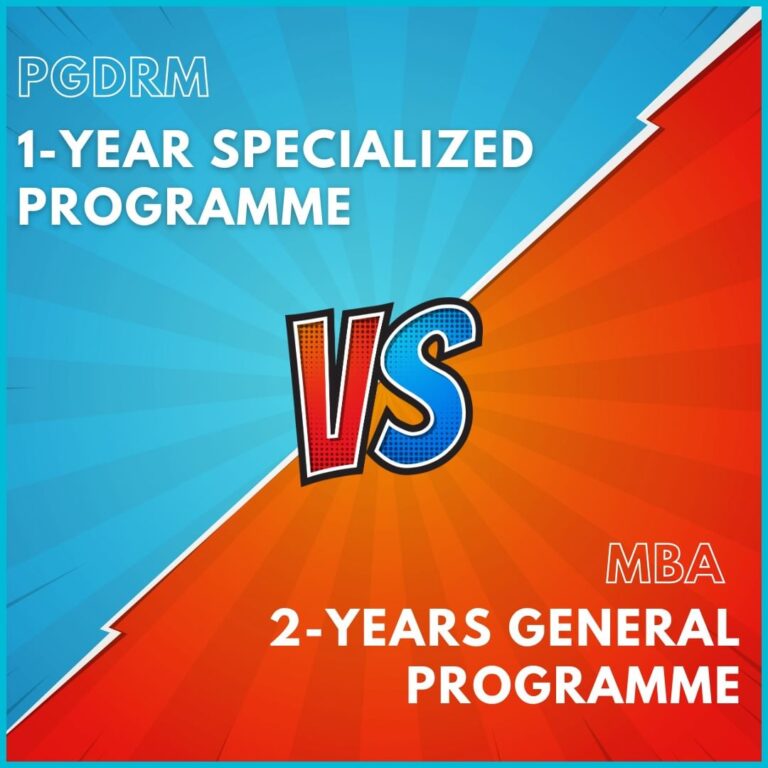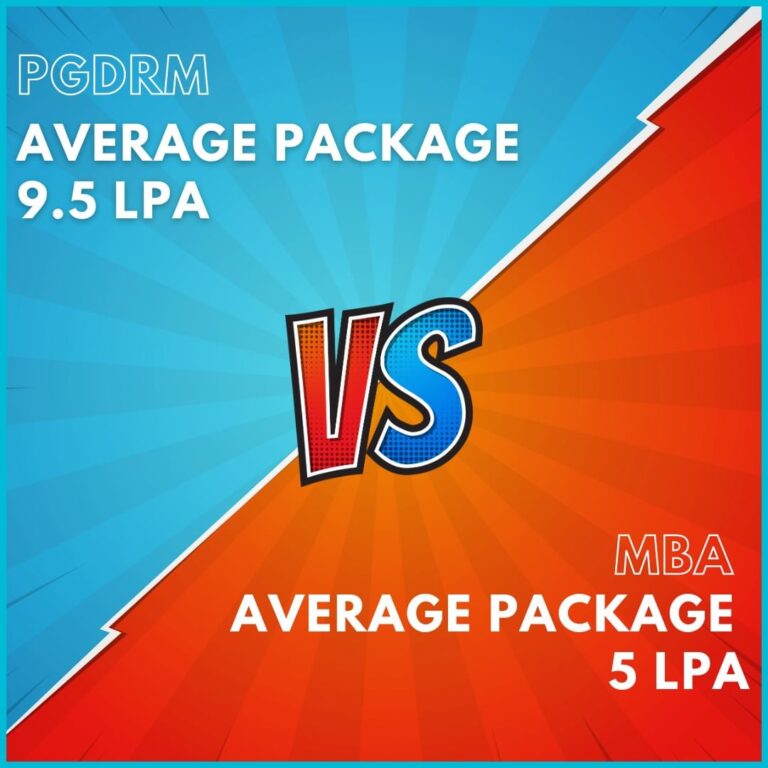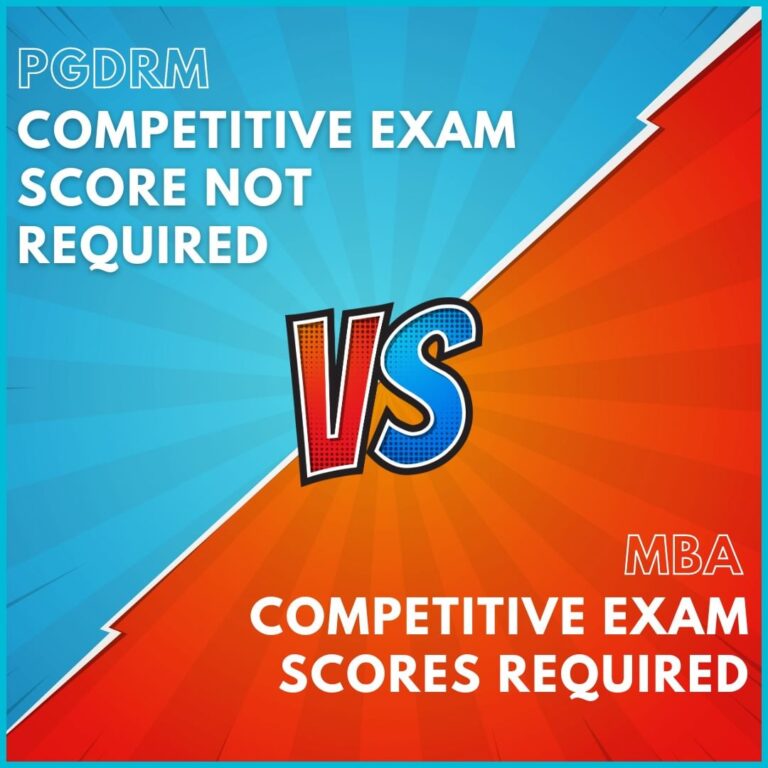
Post Graduation Diploma in Risk Management (PGDRM) vs MBA
Post Graduation Diploma in Risk Management (PGDRM) vs MBA
PGDRM vs MBA: Choosing the Right Path
When deciding between a Post Graduate Diploma in Risk Management (PGDRM) and a Master of Business Administration (MBA), many students face a dilemma. Both courses provide valuable knowledge, but they lead to very different career paths. This article highlights the main differences between the two.

Scope of Study
Both MBA and PGDRM are professional programs available after graduation. However, their scope of study differs significantly.
An MBA is known for its traditional curriculum. It covers a wide range of subjects like management, finance, operations, and marketing. The aim is to give graduates a holistic understanding of business and leadership.
In contrast, the PGDRM focuses on a specialized area—risk management. Students learn how to identify, evaluate, and minimize potential business risks. The program includes modules on Financial Risk Management (FRM), Strategic Risk Management, Enterprise Risk Management (ERM), Third-Party Risk, IT Risk, Compliance, Corporate Governance, and Cyber Security Risk Management.
This specialization ensures graduates become experts in a critical function of modern businesses.
In-Depth Expertise
An MBA is usually a two-year general program. It prepares students with broad business knowledge, making it ideal for leadership roles that require multitasking across domains.
On the other hand, the PGDRM is a one-year program in India. It is designed for those who want depth of knowledge in a niche field. The course dives into risk assessment, regulatory compliance, enterprise-wide risk frameworks, and cyber risk management.
This focused approach helps students develop practical, job-oriented skills. As a result, PGDRM graduates are better equipped to handle the challenges of an increasingly complex and risk-driven business environment.

Career Alternatives Beyond a General MBA
Aspiring students often work hard to excel in competitive exams to secure admission to top colleges. These institutions can transform their careers and open doors to lucrative opportunities. However, not everyone can make it to such colleges. In those cases, many end up in general MBA programs that often provide only a minimum salary package.
An alternative is the Post Graduate Diploma in Risk Management (PGDRM) offered by the Global Risk Management Institute (GRMI). This program stands out as one of the best professional courses after graduation. Unlike MBA admissions, students do not need to appear for competitive exams. Within just one year, they can become risk professionals and start earning attractive salary packages both as freshers and later as experienced professionals.
Why Risk Management Is the Smarter Choice
In today’s dynamic global landscape, risk management has taken center stage. Organizations constantly face threats—ranging from economic instability to cybersecurity challenges. A PG Diploma in Risk Management directly addresses these realities.
The program’s specialized curriculum equips graduates with practical tools to identify risks, predict future challenges, and create proactive strategies to mitigate them. This ensures that students are not only employable but also highly valued in industries where risk management expertise is in high demand.

Career Pathways
The career trajectories stemming from these two programs differ considerably. MBA graduates generally step into diverse management roles across industries, leveraging their versatile skill set in areas such as finance, marketing, operations, and strategy. In contrast, individuals who pursue a Post Graduate Diploma in Risk Management (PGDRM) are prepared for highly specialized roles such as Risk Managers, Compliance Officers, Consultants, Forensic Investigators, Due Diligence Analysts, and Cybersecurity Specialists. These roles are witnessing rising demand, as organizations across sectors acknowledge the critical importance of safeguarding their operations against evolving risks.
Duration and Focus
Another major differentiating factor lies in the time commitment and academic focus. While MBA programs usually extend over two years and provide a broad-based understanding of business disciplines, the PGDRM is typically a one-year program that delivers concentrated expertise in the risk management domain. This shorter yet specialized curriculum makes the PGDRM an attractive choice for individuals aiming to quickly enter the workforce as skilled risk professionals without compromising on the quality of education.

Conclusion
In today’s dynamic educational and professional landscape, choosing between a Post Graduate Diploma in Risk Management (PGDRM) and an MBA requires a clear understanding of one’s long-term goals and aspirations. While an MBA provides a broad skill set that opens doors to diverse management roles, the PGDRM stands out as the ideal choice for individuals aiming to build a specialized career in risk management.
With its focused curriculum, practical learning, and alignment with the rapidly growing need for risk professionals, the PGDRM offers a direct pathway to success in this field. The demand for experts who can anticipate, analyze, and mitigate risks is increasing across industries, making this qualification both relevant and rewarding.
In India, a career in risk management is expanding rapidly. The Global Risk Management Institute (GRMI) plays a pivotal role in shaping future-ready professionals through its 1-year full-time PGDRM programme. Students not only gain exposure to real-time case studies but also acquire insights into the latest industry trends, preparing them for high-value career opportunities in a competitive job market.
You may also like

Career Scope After Completing a Diploma in Cybersecurity



